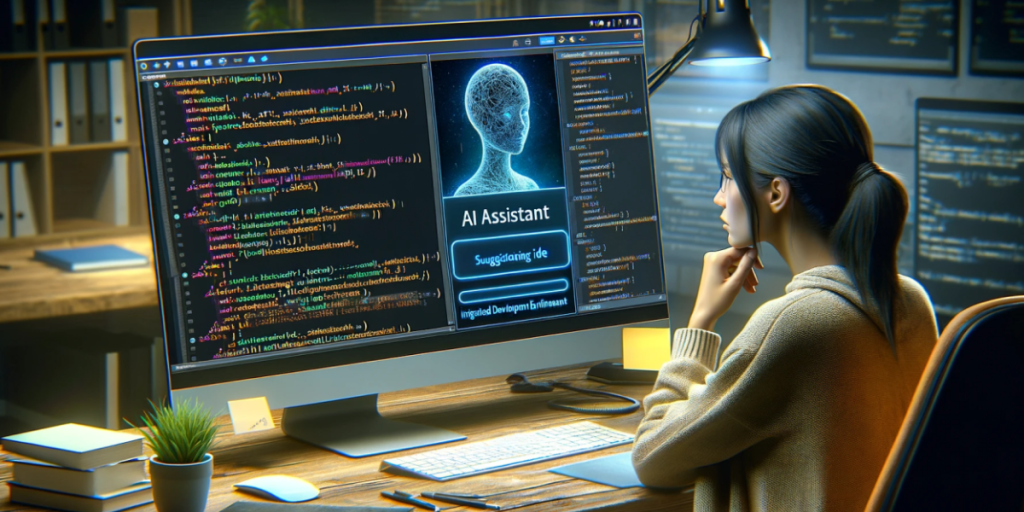As technology advances across the digital environment, cloud computing changes how businesses, individuals, and industries think about data storage, processing, and application development. Cloud computing is evolving paradigms, shifting away from traditional on-premise infrastructure towards a dynamic and scalable model. The model uses the power of networks, remote servers, and other services accessible via the Internet.
The business world has always struggled in the face of limitations on its infrastructure. However it has found to be challenging to adjust to changing computing requirements and maximize the use of resources. The introduction of cloud computing was initially a lifeline in that it allowed organizations to escape the physical limitations by allowing access on demand to distant servers and applications via the internet. The quantity and complexity of data increased. Businesses faced new obstacles ranging from security issues for data to the necessity for better analysis and automation.
That’s where AI in cloud computing can be seen as a game changer. Through its intelligence and data processing skills, AI seamlessly integrates into cloud-based environments to address these issues head-on. From enhancing data security with advanced threat detection to providing valuable insights with complex analysis, AI Cloud Solutions allows businesses to traverse the digital world unimaginably easily.
Cloud service providers use AI advances in planning supply chain operations, generating code security, productivity, and forecasting. The rapid growth of this collaboration is driving the development of cloud platforms. Giving the ability to seamlessly access cloud-hosted AI solutions for research and development of applications. The convergence of AI and cloud technology will bring continuous improvement and rapid changes. Hence fundamentally changing how we build AI and use cloud resources.
What Is AI Cloud Computing?
AI cloud computing amalgamates cloud computing’s capabilities with artificial intelligence technology, creating seamless, interconnected experiences. This combination allows incredible flexibility, efficiency, and strategic insight. Artificial intelligence is vital in automating basic IT infrastructure functions, like data analysis and network optimization, thus increasing efficiency. Cloud computing with AI creates a robust network capable of keeping massive amounts of data and constantly learning and improving independently.
AI used in cloud computing uses cloud computing’s computational capability and capacity to build and develop machine learning algorithms. Models trained using large datasets are becoming more proficient at tasks that require a lot of effort, such as analyzing medical imaging for tumors when more information is fed into them. Industries can tailor the models to suit specific needs as input data differs from raw data to structured formats.
AI in cloud computing lets developers use built-in services like speech analytics, text analytics processing for vision, and translating languages. This eliminates the necessity of creating distinctive ML models entirely from scratch. Although these are all-purpose services, cloud providers are constantly expanding them. Cognitive computing is designed to mimic human thinking processes; customers can offer personalized information to help train. This helps choose suitable algorithms or models for training. Making the process easier and AI much more accessible and flexible to various applications.
How Is AI Affecting Cloud Computing?
AI cloud computing has revolutionized the delivery of services on the internet by integrating servers, software, databases, analytics, and networks on the cloud. The main benefit of AI cloud computing comes from its cost-effectiveness approach. It guarantees that companies only pay based on their consumption. This unique approach, which results from the synergy between AI and cloud computing, enhances operational efficiency, dramatically lowers costs overall, and significantly transforms the digital services approach.
Powering a Self-Managing Cloud
The world of AI Cloud-Based Solutions is undergoing the beginning of a revolution in the direction of artificial intelligence. Taking over tasks that are automated within the IT infrastructure. The new technology is optimized for processes and can monitor and manage autonomously, self-healing and responding to issues. Artificial intelligence in cloud computing is at the top of its game. Enabling core functions and using analysis to design complex, independently operating processes that create an effective and robust cloud.
Using Dynamic Cloud Services
Artificial intelligence for dynamic cloud services is an era of change for businesses. Imagine a cloud-based retail store readily adaptable to automated price adjustments in response to demand, competition, and inventory. This improves efficiency and lets businesses concentrate on more crucial aspects of their company. Cloud computing’s synergy with AI and dynamic services allows organizations to ensure the most efficient pricing strategies in the ever-changing market.
Improving Data Management
In AI cloud computing, organizations struggle with enormous quantities of data. They’re finding relief in AI instruments that revolutionize managing data. AI excels at uncovering and cataloging data within the cloud, easing the often complicated process. For instance, consider the financial sector, which handles hundreds of transactions per day; AI in cloud computing uses AI to reduce the time spent processing data and demonstrates the transformational combination of AI and efficient data management within the cloud.
Benefits Of Using AI In Cloud Computing
Businesses are reaping transformative benefits from the interplay of cloud computing and AI. This continuous integration increases the efficiency of operations, decreases expenses by utilizing intelligent automation, and improves the effectiveness of data-driven decision-making. Combining AI and cloud computing can open the doors to new possibilities, propelling enterprises into a new realm of growth and innovation.
Lower Costs
At first, ML models weren’t affordable for smaller enterprises because they required multiple GPUs within large data centers for corporate use. Nowadays, advancements in virtualizing public and private cloud services have significantly reduced the expense of developing, testing, and deploying models. By reducing financial barriers, small and mid-sized companies can take advantage of the advantages of AI and AI cloud computing for greater productivity and increased innovation.
Productivity
Centralized management of hybrid and public clouds through AI for cloud computing allows IT departments to concentrate on non-recurring tasks. Contrary to previous times, administering AI-based algorithms could be laborious and time-consuming. The current landscape of AI and cloud computing integration makes managing it easier. Freeing human resources leads to better efficiency and increased productivity within the digital realm and is an essential improvement in cloud-based services.
Automation
Integrating artificial intelligence into cloud computing technology signals an era of efficiency in which everyday jobs can be easily performed. Cloud computing and AI can transform day-to-day processes by optimizing processes and removing funds from manual intervention. The combination of AI and cloud computing doesn’t just automate everyday tasks. Still, it can also mark a change in how technology improves productivity, clearing the way to a future in which automation is the foundation of the digital infrastructure.
Data Management
Combining AI and cloud computing revolutionizes data management and enhances security and efficiency. This powerful duo can automate work dealing with massive amounts of data, ensuring seamless and efficient operations. Additionally, AI plays a vital part in helping to transfer data from traditional systems to cloud-based environments, which illustrates the profound effects of AI and cloud computing on current data management processes.
Drawbacks Of AI In cloud Computing
Integrating artificial intelligence in cloud computing can have its disadvantages. Let’s explore them:
Data Privacy
Cloud computing and AI work together and demand a cautious method of protecting data. A robust privacy and security policy is crucial since artificial intelligence processes and analyses vast amounts of information, which includes sensitive information like customer and supplier information. With the ever-growing importance of personal information and data privacy, a firm dedication to protecting data and legal compliance is required. The current environment of AI and cloud computing demands constant diligence to protect data privacy and adhere to the ethical guidelines in the digital realm.
Connectivity Concerns
A fundamental feature of cloud computing is AI, which relies on an ongoing internet connection to handle the continuous flow of data. Machine learning in the cloud offers numerous advantages, like speed. Unfortunately, unreliable internet connectivity poses one significant drawback. Although data processing performance is high using cloud computing, data loss is an issue for those who depend on cloud-based services. The solution to these connectivity issues is vital to maximizing the power of AI and cloud computing to the fullest extent.
Applications Of AI In The Cloud
The potential of AI and cloud computing is limitless—starting with transforming the user experience with natural language processing and optimizing resource allocation with predictive analytics. Let’s look at how this combination has transformed the technological landscape, introducing a brand-new era of creativity and effectiveness.
Loan Processing
The loan processing industry is an excellent illustration of cloud-based computing AI applications. Cloud computing and artificial intelligence transform how we do business, particularly for credit and banking institutions. Cloud AI Solutions are streamlining operations and improving efficiency and customer service. Imagine a bank handling a multitude of loan applications.
Machine learning algorithms rapidly assess creditworthiness, making decisions faster and providing an accurate and fair process based on data. The dynamic combination of AI and cloud computing streamlines the process, cutting down on time and bringing in an era of efficiency, speed, and a strong focus on customer service.
Supply Chain Optimization
The optimization of supply chain processes is evolving because of the integration of cloud computing AI. Organizations using AI redefine the notions of efficiency, effectiveness, and cost-effectiveness. Imagine a giant manufacturing company that manages complex supply chains; AI integrated with cloud computing employs predictive analytics to anticipate demands, allowing the company to adjust inventory proactively.
This reduces the risk of overstocking, decreases the risk of shortages, improves customer satisfaction, and reduces inventory costs. Monitoring in real-time using the combination of AI with cloud computing can transform the supply chain’s management into precision, agility, flexibility, and competitiveness.
Scaling And Provisioning Of Infrastructure
AI-driven automation simplifies routine software updates, patches for software, and maintenance work by optimizing the planning and implementation of these actions. In the continuous process of analyzing workload and user behavior patterns, AI algorithms optimize resource allocation and ensure that the correct quantity of power for computing is allocated precisely when required.
This improves operations efficiency and decreases idle resource usage in times of low usage, ultimately leading to the best resource utilization. Automated provisioning processes allow cloud infrastructures to grow or shrink effortlessly, providing a scalable and economical solution for the demands of changing workloads in real time.
Predictive Analytics And Business Intelligence
In combination with AI, cloud computing can unlock the power of business intelligence and predictive analytics. By leveraging this powerful synergy, companies can use vast data to transform them into valuable insights. Imagine a giant e-commerce company that is aware of the market’s trends. Thanks to the power of artificial intelligence within the cloud, past data on sales and the behavior of customers are analyzed to anticipate future trends and help guide strategy for managing inventory and marketing.
This insight extends to banks, where AI-powered analysis scrutinizes transactions to detect fraud while minimizing risk and protecting customers’ assets. AI and cloud computing enable companies to see the future, make informed choices, anticipate market trends, and remain adaptable in an ever-changing market.
Integration And Accessibility Of Data
Cloud-based platforms function as central and easy-to-access repositories of vast amounts of data. This is an essential aspect of training and improving AI models. Data storage on cloud platforms allows for seamless access and processing by AI algorithms, improving the accuracy and precision of their predictive abilities. Additionally, integrating diverse information sources is more accessible, allowing for a more holistic method of data-driven decision-making. This streamlines the process and helps create a more efficient and cohesive use of AI capabilities within a cloud-based environment.
Cybersecurity And Threat Detection
Integrating artificial intelligence in cloud security is now an effective defense against cyber-attacks, introducing the new age of cybersecurity within AI cloud computing. Imagine a bank that protects its customers’ confidential information using sophisticated AI algorithms that monitor the network’s traffic and behavior. A rapid identification of abnormalities prompts immediate action to stop security breaches.
Additionally, multinational corporations profit from AI-powered security because it detects abnormal activity and adjusts their security measures based on the latest threat models. This nifty combination is transforming the cyber battlefield and ensuring that organizations stay ahead of cyber-attackers and protect the security of information stored in the cloud.
Big Data Analysis
AI and ML are crucial in cloud-based extensive data analysis, as they efficiently process massive databases. These tools allow pattern recognition, predictive modeling, and the extraction of valuable information. Companies can extract actionable data by analyzing massive amounts using sophisticated algorithms that facilitate strategizing and decision-making based on data.
If implemented in cloud-based environments, AI and ML technologies employ sophisticated algorithms to analyze and process large amounts of structured and unstructured information. It allows organizations to deal with complicated and varied datasets with ease.
Automation And Process Innovation
Integrating AI cloud computing can take the automation process and technology to new heights. Imagine a company in the manufacturing industry using automation. Using AI in cloud computing, robotics equipped with AI capabilities can perform repetitive manufacturing tasks, decreasing mistakes and improving efficiency. For customer service, chatbots.
Cloud-based AI transforms conversations as chatbots participate with customers in conversations that naturally answer customer queries quickly. Humans are freed up to tackle complex problems, increasing creativity and efficiency. Combining AI with cloud computing can open the door to a new world of possibilities and efficiency for companies.
The Future Of AI Cloud Computing 2025
A new era of AI cloud computing technology has incredible potential for the transformation of the way we work. Computing AI creates efficiency, innovation, and unprecedented potential for business globally.
AI And The Evolution Of Cloud Computing
With the rapid pace of technological advancement, integrating AI into cloud computing has become an essential factor in shaping the future. Since its beginnings, cloud computing has constantly developed new ideas and techniques, shaping its future in this rapidly evolving sector. The path ahead includes the rise of the hybrid cloud, which blends on-premises and public cloud computing, and the advancement of edge computing, which extends cloud technology’s power towards the edge of networks. Furthermore, AI-based applications transform cloud computing and bring about a paradigm change in the way data is used and processed.
Hybrid Cloud: The New Frontier For AI In Cloud Computing
A hybrid cloud is an exciting frontier, combining the infrastructure of an on-premises facility with cloud services. The Hybrid Cloud Solution Architect—Data & AI blends private and public cloud services. This allows organizations to manage the privacy of information stored in infrastructure on premises while scaling up with the public cloud. Managing the hybrid cloud is complex, requiring precise coordination and seamless integration.
Final Thoughts
The transformational procedure in AI cloud computing transformed the technology landscape. Hence opening the way to a future marked by unprecedented efficiency and innovation. Cloud and artificial intelligence together have dramatically transformed business operations. They have also opened the way for logistics optimization, cybersecurity advancements, predictive analytics, and even automation.
Amid industries navigating this dynamic crossroads of AI and computing, opportunities to grow, scale, and make strategic changes are growing exponentially. The dynamic duo maximizes cost through efficient resource allocation and predictive analytics to aid capacity planning. Real-time threat detection can improve security, and the automated management system, flexible resources, and streamlined workflows boost operations efficiency.
AI’s influence is extended to workflow automation Such as image and speech recognition and constant monitoring. This adds to the flexibility and adaptability of companies operating in the cloud. These organizations are on the leading edge of technology advancement and facilitate data-driven decision-making, resource efficiency, and better customer experiences. Strategic implementation of AI in cloud computing propels companies into a new age. It ensures they stay relevant and flexible within an ever-changing digital world.

























